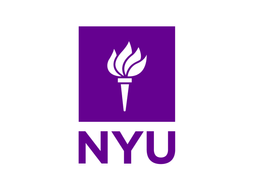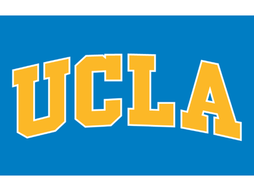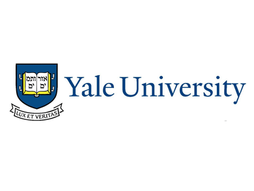MathCamp: 7 Reasons Why You Should Apply
Summer math camps are an enriching opportunity for any high school student looking to pursue a college career in math, and who is passionate about engaging with the subject at a higher-than-high-school level.
When it comes to math camps for high school students, Canada/USA MathCamp (a non-profit organization) is one of the more prestigious summer programs aimed at math enrichment before college. With an acceptance rate of less than 5%, the program accepts only 120 students for each cohort from around the world.
MathCamp was founded by two passionate students back in 1993 and has seen over 1500 students take part in their annual program since its inception The program is highly competitive to get into, and you need to start working on a strong application, as well as your math skills to place yourself as an ideal candidate for this program.
In this blog, we'll be outlining 7 reasons why you should apply and aspire to participate in this program, along with essential information about Mathcamp, such as eligibility, cost, location, dates, and deadlines, as well as testimonials and highlights from past cohorts.
Note: This year's MathCamp will take place at Champlain College in Vermont, and is open to high school students from around the world.
7 Reasons You Should Apply to Math Camp
1. Get taught by expert faculty and expert mentors
MathCamp boasts of some of the best researchers and scholars in the field of mathematics, who engage, interact, and teach participants over the course of a summer. As a participant, you learn from guest lecturers, college faculty and graduate students from top universities across the country.
Here are a few professors, researchers, and professionals that comprised the 2022 faculty cohort -
Susan Durst (math faculty at Proof School), Mark Krusemeyer (Carleton College), Mia Smith (University of Michigan), Misha Lavrov (who teaches at University of Illinois Urbana-Champaign) Nic Ford (University of California, Berkeley) and Vivian Kuperberg (Stanford University), to name a few.
You can check out a complete list of the 2023 program faculty and coordinators here. International exposure is an excellent indicator of a math program, and as a participant, you are expected to make the most out of this opportunity.
2. Enjoy a wide range of student life opportunities
MathCamp is a residential summer program, which means you can experience college life with like-minded peers right even before you join your undergraduate degree. The program has received great reviews on the balance it provides its students in terms of study/learning and extracurricular activities.
MathCamp is held on a different university campus across the USA and Canada each year, so you get to experience a different university and campus life than the cohort before you. When you're not learning, you can engage in board games, video game nights, or informal events that you, as a student, can host for the MathCamp community!
If you're looking for a residential summer program that offers a good balance between curricular and non-curricular activities and exposure, MathCamp is a good place to start.
3. Network and bond with like-minded students
Each year's cohort of 120 students invites some of the brightest high schoolers and the most passionate young minds for an entire summer. Networking opportunities before college are vital, and MathCamp, as a fully residential opportunity, allows you to interact with your peers both in an academic setting and a non-academic one!
Group/peer learning is highly encouraged at MathCamp, and you are expected to discuss research and work on it in groups/pairs. A knack for collaborative learning is a skill most admissions officers look for in prospective students, and highlighting an experience such as this gives your profile a good boost.
4. Interact with in-depth course material
MathCamp offers a curriculum that ranges from beginner to advanced and covers multiple topics. As a participant, you are expected to engage with courses in theoretical math such as Abstract Algebra, Topology, or Real Analysis. Additionally, MathCamp also offers unique courses that you may have never heard of before, such as Model Theory or Spectral Graph Theory.
Alongside lectures and group projects based on these topics, you also have a chance to work on independent research under the guidance of mentors present at the camp. You can engage fully with the course material and apply those learnings to your own research, a point we'll be covering in the section below.
One feature of the program that sets it apart from most math camps for high schoolers is that you get to choose the subjects you will learn for the program - you can choose which classes to attend, which difficulty level to engage with, and which project topic to choose. This flexibility is one of the most appealing features of MathCamp.
5. Get a chance to advance your own research
Conducting independent research in math is often a very intimidating prospect for high schoolers, especially without appropriate mentorship and guidance. If you're passionate about furthering current findings in the field or developing your own proofs/theories, MathCamp fully encourages independent research. At the end of the camp, you are expected to present your personal project to all the participants and faculty - this project can be adjacent to your research or something completely unique, such as writing code, building a robot, crocheting a non orientable surface, as well as preparing and teaching a class.
MathCamp alumni have gone on to conduct commendable research outside of camp with the concepts and mentorship they have picked up on while in camp, and below are a few examples -
Möbius Polynomials of Face Posets of Convex Polytopes, coauthored by Meena Jagadeesan (student) and Susan Durst (staff), published in the journal Communications in Algebra
Harmonic algebraic curves and noncrossing partitions, coauthored by Jeremy Martin (staff), David Savitt (staff), and Ted Singer (student), published in the Journal of Discrete and Computational Geometry
Many participants from MathCamp have gone on to gain honors at competitions such as Davidson Fellows, Intel ISEF as well as Siemens.
6. Boost your resume
MathCamp is a very competitive and prestigious program open to only a select number of high school students each year, from all over the world. With an acceptance rate of less than 5%, and a student-to-staff ratio of 4:1, representing your school and country at MathCamp is a proud achievement. This adds greatly to your resume! You can also work on skills such as independent research writing, collaborative learning, and applying advanced mathematical concepts to your project - which strengthens your profile even further.
7. Receive generous financial aid (if you qualify)
MathCamp offers financial aid to deserving students from all over the world, so if you demonstrate need and merit, you can attend the program for 0 costs! The program was created keeping in mind accessibility and barrier-free learning in the field of math, so you can keep this in mind while scouting for summer math programs. You can find more details about financial aid here.
About Canada/USA MathCamp
Who is eligible to apply and participate?
Students across the world between the ages of 13 and 18 are eligible to apply for the camp. You will need to travel to the location of the camp, which is Champlain College for the 2023 cohort to take part in the residential camp.
Most Mathcamp students come from the USA (typically 75%) and Canada (typically 5-10%), while a significant contingent of international students (10-15%) comes from countries like Azerbaijan, Brazil, Bulgaria, India, and China.
What is the application deadline for the 2023 program?
The application deadline for the 2023 MathCamp is March 9, 2023. You should expect the deadline for the 2024 cohort to be on or around the same date!
What are the program dates for the Math Camp 2023?
The program runs for about 5 weeks in the summer, and for 2023, the program dates are July 2 to August 6, 2023.
What do I need to apply to the program?
In order to apply for the program, you will need the following -
Basic personal and contact information.
Some information about your school and your mathematics background.
A personal essay about why you want to come to Mathcamp.
Your solutions to the Mathcamp 2023 Qualifying Quiz.
Two recommendation letters: one academic, one personal.
(Optional) A scholarship application, if you require assistance to attend Mathcamp.
There is no application fee!
What does a typical Camp Day at MathCamp look like?
Here is a typical schedule of a MathCamp participant for the upcoming 2023 program. Additionally, you can find the camp calendar here.
Where can I find more information about the courses offered at MathCamp?
You can find more information about the various courses offered at MathCamp here.
What is the cost of the program?
The program + residence fee comes to a total of $5,000, but you will pay anywhere between $5,000 to $0 depending on the amount of financial aid you receive.
Where is the program held?
The 2023 program will take place at Champlain College in Burlington, Vermont.
What are some extra resources that can help me with my application for MathCamp?
Here are a few resources that can help you with your application/research about the program
If you're looking for a real-world internship that can help boost your resume while applying to college, we recommend Ladder Internships!
Ladder Internships is a selective program equipping students with virtual internship experiences at startups and nonprofits around the world!
The startups range across a variety of industries, and each student can select which field they would most love to deep dive into. This is also a great opportunity for students to explore areas they think they might be interested in, and better understand professional career opportunities in those areas.
The startups are based all across the world, with the majority being in the United States, Asia and then Europe and the UK.
The fields include technology, machine learning and AI, finance, environmental science and sustainability, business and marketing, healthcare and medicine, media and journalism and more.
You can explore all the options here on their application form. As part of their internship, each student will work on a real-world project that is of genuine need to the startup they are working with, and present their work at the end of their internship. In addition to working closely with their manager from the startup, each intern will also work with a Ladder Coach throughout their internship - the Ladder Coach serves as a second mentor and a sounding board, guiding you through the internship and helping you navigate the startup environment.
Cost: $1490 (Financial Aid Available)
Location: Remote! You can work from anywhere in the world.
Application deadline: April 16 and May 14
Program dates: 8 weeks, June to August
Eligibility: Students who can work for 10-20 hours/week, for 8-12 weeks. Open to high school students, undergraduates and gap year students!
Additionally, you can also work on independent research in AI, through Veritas AI's Fellowship Program!
Veritas AI focuses on providing high school students who are passionate about the field of AI a suitable environment to explore their interests. The programs include collaborative learning, project development, and 1-on-1 mentorship.
These programs are designed and run by Harvard graduate students and alumni and you can expect a great, fulfilling educational experience. Students are expected to have a basic understanding of Python or are recommended to complete the AI scholars program before pursuing the fellowship.
The AI Fellowship program will have students pursue their own independent AI research project. Students work on their own individual research projects over a period of 12-15 weeks and can opt to combine AI with any other field of interest. In the past, students have worked on research papers in the field of AI & medicine, AI & finance, AI & environmental science, AI & education, and more! You can find examples of previous projects here.
Location: Virtual
Cost:
$1,790 for the 10-week AI Scholars program
$4,900 for the 12-15 week AI Fellowship
$4,700 for both
Need-based financial aid is available. You can apply here.
Application deadline: On a rolling basis. Applications for fall cohort have closed September 3, 2023.
Program dates: Various according to the cohort
Program selectivity: Moderately selective
Eligibility: Ambitious high school students located anywhere in the world. AI Fellowship applicants should either have completed the AI Scholars program or exhibit past experience with AI concepts or Python.
Application Requirements: Online application form, answers to a few questions pertaining to the students background & coding experience, math courses, and areas of interest.
If you are interested in doing university-level research in math, then you could also consider applying to the Lumiere Research Scholar Program, a selective online high school program for students that I founded with researchers at Harvard and Oxford. Last year, we had over 2100 students apply for 500 spots in the program! You can find the application form here.
Stephen is one of the founders of Lumiere and a Harvard College graduate. He founded Lumiere as a PhD student at Harvard Business School. Lumiere is a selective research program where students work 1-1 with a research mentor to develop an independent research paper.
Image source: MathCamp logo











